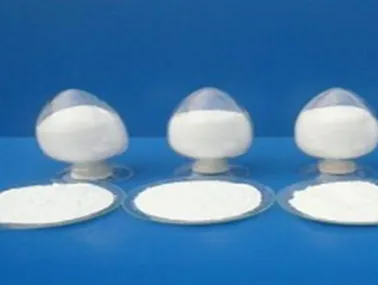
Monosodium Glutamate Available for Purchase Online - Best Quality and Prices
The Versatility and Appeal of Monosodium Glutamate A Comprehensive Overview
Monosodium glutamate (MSG) is a flavor enhancer that has ignited debates among health enthusiasts and culinary experts alike. It is particularly noted for its ability to enhance umami—the savory taste that makes dishes more palatable and appealing. With MSG's widespread availability, especially for sale in various forms, understanding its origins, uses, and the discussions surrounding its consumption is crucial for both consumers and manufacturers.
What is Monosodium Glutamate?
MSG is the sodium salt of glutamic acid, an amino acid that naturally occurs in many foods, including tomatoes and cheeses. Discovered in the early 20th century by Japanese chemist Kikunae Ikeda, MSG was initially drawn from seaweed. Since then, it has been mass-produced through fermentation processes similar to those used in yogurt or vinegar production.
Culinary Uses of MSG
MSG has found a firm place in kitchens and food industries around the world, primarily due to its ability to intensify flavors without adding much sodium. Chefs in restaurants often turn to MSG when creating rich, flavorful dishes, as it can lower the need for salt while still providing a depth of flavor. Asian cuisines, in particular, embrace MSG, and it is commonly found in soups, sauces, and processed foods.
In recent years, MSG has been marketed beyond the Asian culinary sphere, with many chefs experimenting with it to elevate the taste of traditional and contemporary dishes. Home cooks can also purchase MSG for sale at grocery stores, allowing them to experiment with this flavor booster in their cooking.
Health Considerations
monosodium glutamate for sale

MSG has been the subject of scrutiny, with various studies pointing to potential negative effects. Some individuals report experiencing symptoms like headaches, sweating, or nausea after consuming foods containing MSG, often referred to as Chinese Restaurant Syndrome. However, extensive research conducted by institutions, including the U.S. Food and Drug Administration (FDA) and the World Health Organization (WHO), has not definitively linked MSG to any serious health concerns in most people.
Furthermore, MSG is classified as “generally recognized as safe” (GRAS) by the FDA, which reassures consumers about its safety in moderate amounts. Nonetheless, it remains advisable for individuals with specific sensitivities to monitor their intake carefully.
Economic Impact and Availability
The global demand for MSG has led to its widespread availability. It can be found in various forms, including powder and granules, at supermarkets, specialty stores, and online marketplaces. The economic impact is significant, as MSG is not only a cost-effective flavor enhancer but also an essential ingredient in many processed foods, leading to its incorporation in countless products from snacks to seasoning mixes.
In the context of international trade, countries such as China and the United States are among the largest producers and exporters of MSG. As a result, buyers can easily find MSG for sale in diverse markets, making it accessible for both commercial use and home cooking.
Conclusion
Monosodium glutamate, with its robust flavor-enhancing properties, has carved out a niche in culinary practices across the globe. As a product that remains readily available for sale, it invites both admiration and criticism within the food industry. While it can undoubtedly elevate the taste of various dishes, being mindful of personal tolerance levels is essential. With the ongoing research and discussions regarding MSG, consumers can make informed choices about its use in their diets. Ultimately, MSG symbolizes the quest for flavor and satisfaction in our culinary experiences, reflecting broader trends in food preferences and dietary habits.
-
Pure Sodium Dichloroisocyanurate Dihydrate | Powerful DisinfectantNewsAug.29,2025
-
Industrial Chemicals: Quality & Purity for Every IndustryNewsAug.28,2025
-
Nitrile Rubber Honoring Strict Production StandardsNewsAug.22,2025
-
Aspartame Ingredients Honoring Food Safety ValuesNewsAug.22,2025
-
Fertilizer for Balanced Plant NutritionNewsAug.22,2025
-
Cyanide Gold Processing with High Purity AdditivesNewsAug.22,2025
-
Formic Acid in Textile Dyeing ApplicationsNewsAug.22,2025
Hebei Tenger Chemical Technology Co., Ltd. focuses on the chemical industry and is committed to the export service of chemical raw materials.
-

view more DiethanolisopropanolamineIn the ever-growing field of chemical solutions, diethanolisopropanolamine (DEIPA) stands out as a versatile and important compound. Due to its unique chemical structure and properties, DEIPA is of interest to various industries including construction, personal care, and agriculture. -

view more TriisopropanolamineTriisopropanolamine (TIPA) alkanol amine substance, is a kind of alcohol amine compound with amino and alcohol hydroxyl, and because of its molecules contains both amino and hydroxyl. -

view more Tetramethyl Thiuram DisulfideTetramethyl thiuram disulfide, also known as TMTD, is a white to light-yellow powder with a distinct sulfur-like odor. It is soluble in organic solvents such as benzene, acetone, and ethyl acetate, making it highly versatile for use in different formulations. TMTD is known for its excellent vulcanization acceleration properties, which makes it a key ingredient in the production of rubber products. Additionally, it acts as an effective fungicide and bactericide, making it valuable in agricultural applications. Its high purity and stability ensure consistent performance, making it a preferred choice for manufacturers across various industries.





